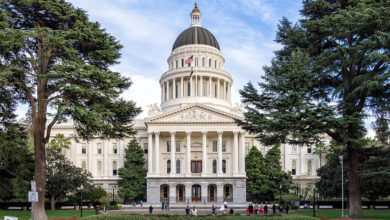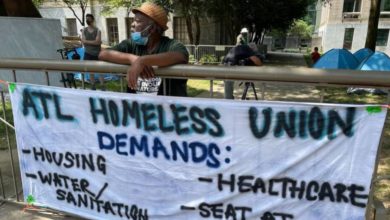On January 22, the morning after a severe blizzard, a Colorado Springs man identified as Calvin Reeves was found frozen to death on a bus bench. Reeves’ death was one in a string of similar deaths that have shaken urban communities throughout Colorado and underscored the grave consequences of the state’s lack of affordable housing and ban on rent control.
In response to this humanitarian crisis, the Colorado Springs City Council has released a homelessness initiative. The initiative, when it isn’t criminalizing the homeless population, does little to nothing to help people, and addresses none of the core issues driving homelessness.
Colorado homelessness boom
Residents of major metro areas like Colorado Springs, Denver, and Boulder have struggled to keep up with increasing housing costs as the state has quickly become one of the least affordable places to live in the country.
Colorado Springs’ cost of living rose the most in the entire country between 2017 and 2018. The income needed to live comfortably in the city increased by nearly $18,000. Consequently, the homeless population in Colorado Springs is on the rise, growing 10 percent last year alone. The city is also facing a shortage of 26,000 affordable housing units, and is only adding about 500 new units per year. As a result, more and more Coloradans are being exposed to the hazards and violence of living on the streets.
Colorado Springs’ right wing “Homelessness Initiative”
Colorado has a shameful track record of mistreating its homeless population. Colorado Springs and Denver have responded to the housing crisis by codifying hostility toward the homeless into law—choosing to expand police sweeps and camping bans rather than funding shelters and affordable housing. But as the human cost of these cruel policies grows, citizens have begun to fight back and demand real answers.
Colorado Springs’ right-wing response to this issue, the “2019 Homelessness Initiative” includes proposals for increasing shelter capacity, but it does not allocate funds, and city officials have expressed doubt that the expansions are actually possible.
Another centerpiece of the initiative is a plan to increase the number of outreach “volunteers” working with the homeless population, rather than paid professional outreach staff trained in mental health or substance abuse issues.
Worst of all, the plan would increase police sweeps and “homeless camp clean-ups.” This is no different from anti-homeless policies enacted in other cities and around the state. Denver is notorious for its brutal and frequent police sweeps of homeless encampments, and Boulder aims to increase funding for its camping ban, allocating $950,000 toward making the city “less accommodating” to the homeless.
What little shelter does exist in Colorado is often unsafe and undignified. At shelters, homeless people are met with bed-bug-ridden cots and drug tests. Shelters are often especially unsafe for transgender people and others from marginalized communities. While the 2019 Homelessness Initiative does include a plan to allocate shelter space and housing for some, such as homeless families and veterans, city officials say that they will struggle to find the space to do so, as shelters are already overcrowded and many of the hotels and buildings that could have been used have been torn down to make room for new development.
The Colorado Springs city government is unable and unwilling to help the city’s growing homeless population, despite rising public outcry. However, they are willing to give tax incentives to developers to build new luxury hotels and housing. The 2019 Homeless Initiative exemplifies how governments under capitalism will always serve private profiteers first, even at the expense of human life.
Homelessness, an artificial crisis of capitalism
Capitalism creates, then criminalizes, poverty and homelessness.
Socialists know that it is possible to end homelessness—especially in the United States, the wealthiest nation on Earth. Cuba and the former Soviet Union are examples of societies that eradicated homelessness with only a fraction of the resources available in the United States. This is what is possible when a society treats shelter as a human right, not a commodity to be profited from.
We must fight for a future where everyone is entitled to safe, healthy, reliable, and dignified housing, and where we will never mourn another senseless loss like that of Calvin Reeves.






